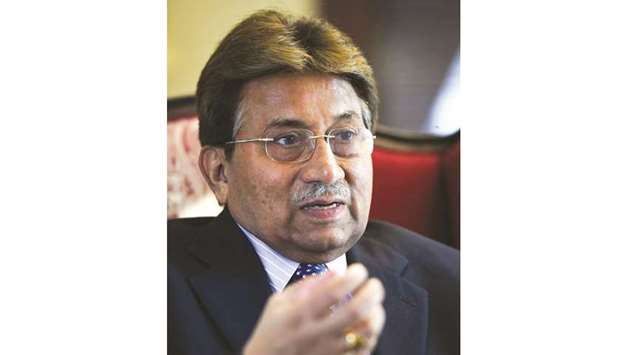A High Court has revoked a guilty verdict and death sentence handed down to former military ruler Pervez Musharraf for treason, declaring that the formation of the court that sentenced him was unconstitutional, a government law officer said.
Musharraf was sentenced to death in absentia by a special court in December on charges stemming from his imposition of a state of emergency in 2007.
The head of a three-judge panel ruled that his corpse should hang for three days if the general died before his execution.
Musharraf had challenged the formation of the court for the sole purpose of trying him for treason.
The Lahore High Court “has declared everything from the initiation of the complaint and its conclusion unconstitutional”, Additional Attorney-General of Pakistan Ishtiaq A Khan, who represented the government in the case, told Reuters.
“At the end of the day, the full judgment has been set aside,” Khan told AFP. “Yes, he is a free man. Right now there is no judgment against him any longer.”
Musharraf’s lawyer also said the sentence had been revoked.
“Lahore High Court has nullified the decision about Pervez Musharraf,” Azhar Siddique said.
The prosecution now has the option to file a new case against Musharraf with the approval of the federal cabinet.
However Saroop Ijaz, a senior lawyer in Lahore who is not affiliated with the case, said that unless the High Court orders the government to do so in its detailed verdict, he doubts any further action will be taken.
The case was initially filed by former premier Nawaz Sharif, he explained – not the current government of Prime Minister Imran Khan, whose “political view is absolutely clear – they don’t want to pursue this case. They took a very clear position after the special court’s ruling”.
Musharraf, 76, who seized power in a 1999 coup and ruled as president until 2008, is currently receiving medical treatment in Dubai.
The general became a key US ally in the “war on terror” after the September 11, 2001 attacks and escaped at least three Al Qaeda assassination attempts during his nine years in office.
He is the first former army chief to have been charged with treason in Pakistan and has said the powerful military helped him get out of the country.
The final years of his rule were marked by struggles with the judiciary over his wish to remain head of the army while president.
He quit in 2008, after a political party that backed him fared poorly in national elections.
Musharraf has lived in self-imposed exile in Dubai since he left Pakistan in 2016.
He is either already convicted or facing trial in at least four other cases, including the assassination of former premier Benazir Bhutto and a prominent tribal chieftain of Baluchistan.
Pakistan has witnessed three coups and has been ruled by the military for close to half its 72-year existence.
Musharraf’s death sentence angered the military that pit it against the judiciary, which traditionally has backed the army in the past.
The sentencing court’s bizarre announcement about hanging Musharraf’s corpse came after the government said it had found “gaps and weaknesses” in the original sentence.

Musharraf: had been sentenced to death in absentia by a special court in December.
